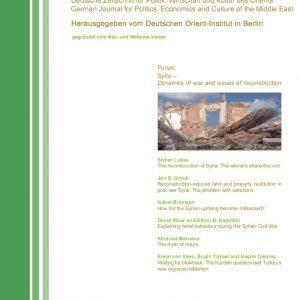Description
Many researchers treat violent and non-violent resistance as two strategies that groups choose between based on rational calculation of their perceived success. However, Syrian activists did not experience the turn from non-violent to violent resistance as a rational choice, or even a choice at all. Based on interviews with activists and citizen journalists, this article shows how emotional mechanisms of revenge and fear caused by the crackdown by the regime drew activists and non-activists to take up arms. Motivational and emotional factors alone cannot account for the militarisation of the uprising. Drawing comparisons to the uprisings in Bahrain and Tunisia, where protests did not become militarised despite regime repression, the article shows how the availability of weapons and the involvement of groups with experience in military action not only enabled but also to a large extent promoted the militarisation of the uprising. Taking its point of departure in these findings, the article reflects upon the potential policy implications for how to prevent militarisation in other uprisings.
Isabel Bramsen is Associate Senior Lecturer at Lund University, Department of Political Science and postdoctoral researcher at the Centre for Resolution of International Conflicts (CRIC), University of Copenhagen. She is the co-author of International Konfliktløsning (Samfundslitteratur 2016) and co-editor of the anthology Addressing International Conflict: Dynamics of Escalation, Continuation and Transformation (Routledge 2019).




Reviews
There are no reviews yet.